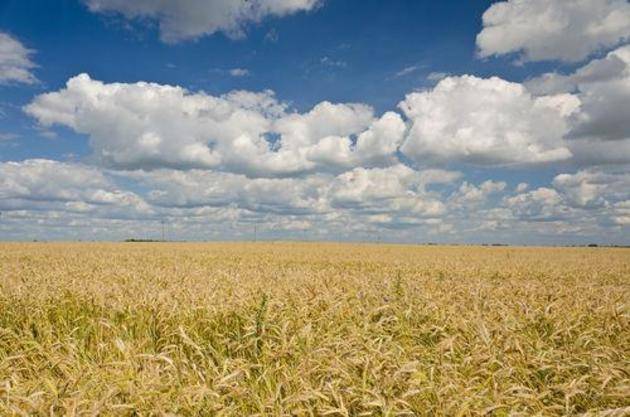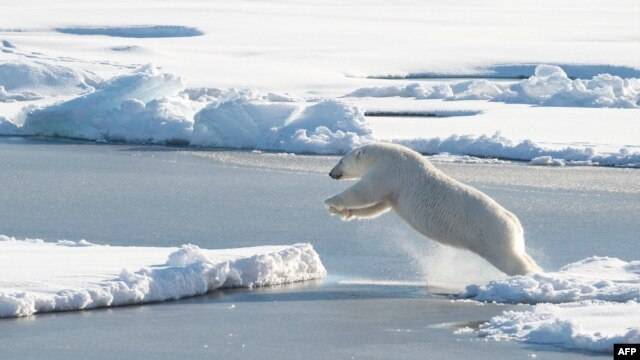Navigation
Install the app
How to install the app on iOS
Follow along with the video below to see how to install our site as a web app on your home screen.

Note: This feature currently requires accessing the site using the built-in Safari browser.
More options
You are using an out of date browser. It may not display this or other websites correctly.
You should upgrade or use an alternative browser.
You should upgrade or use an alternative browser.
Save the Climate, Part XXI
- Thread starter excalibur
- Start date
ScienceRocks
Democrat all the way!
- Banned
- #3
What a joke you people are! lol
Boss
Take a Memo:
Back in the 1960s when I was just a kid... the leftists all said that we were heading for another ice age... the science was conclusive! The solution proposed was to let government have more power over the individual in order to avert certain doom! A few years later, the science showed there was no significant cooling. A few years later, the leftist all said that the earth was warming due to man-made carbon emissions... the science was conclusive! The solution proposed was to let government have more power over the individual in order to avert certain doom! A few years later, science showed there was no significant warming. Now the leftists claim we have "climate change" and the solution proposed is to let government have more power over the individual in order to avert certain doom!
"Climate change" is the perfect liberal cause because no matter what happens they can still make the claim. If it gets warmer... climate change... if it gets cooler... climate change! Curiously, the solution proposed is STILL to let government have more power over the individual in order to avert certain doom!
"Climate change" is the perfect liberal cause because no matter what happens they can still make the claim. If it gets warmer... climate change... if it gets cooler... climate change! Curiously, the solution proposed is STILL to let government have more power over the individual in order to avert certain doom!
TyroneSlothrop
Diamond Member
- Banned
- #5
You also have right-wing-nuts on the radio like Mark (Mr. Hate) Levin and Michael Savage claiming the whole world is wrong and only the Republican Party in one country is right. That just doesn't make logical sense. Republican hatred for Obama and Hillary is so intense now, that they would gladly destroy America and the whole world rather than to give in to them. Existing American jobs don't mean anything if America is burning to death. What's so ironic is that the challenge...
See More

See More

Boss
Take a Memo:
You also have right-wing-nuts on the radio like Mark (Mr. Hate) Levin and Michael Savage claiming the whole world is wrong and only the Republican Party in one country is right. That just doesn't make logical sense. Republican hatred for Obama and Hillary is so intense now, that they would gladly destroy America and the whole world rather than to give in to them. Existing American jobs don't mean anything if America is burning to death.
Well you're an idiot. First of all, "the whole world" isn't agreeing with you. More scientists are coming out every day and saying that this is a great big fat HOAX and there is no REAL science to support it. Socialist and Communist regimes are more than happy to help take down the Great Capitalist Giant! That's ALL this is about. You want government to control everything so they will give you stuff. You think, in your stupid little head, this is the answer to all our problems. You don't even have enough sense to learn about history. You're just a knee-jerk reactionary SHEEP who believes whatever your Socialist and Communist masters tell you to spew forth. You richly deserve to be marginalized and shunned. Ostracized from civilized society forever! You are a danger to yourself and to the world.
Massive crop failure on a global scale vulnerable to climate change...
Global food systems vulnerable to climate change
Wednesday 6th January, 2016 -- Massive crop failure on a global scale could be a reality if food systems aren't better protected from climate change.
See also:
Climate Change Is Certain But You Can't Predict the Future
January 7, 2016 | When asked Thursday about federal data showing that fossil fuels will provide about 80 percent of the world’s energy needs through 2040 and that U.S. carbon emissions are at the lowest they’ve been in decades, the Environmental Protection Agency Administrator said that it’s impossible to predict the future.
Global food systems vulnerable to climate change
Wednesday 6th January, 2016 -- Massive crop failure on a global scale could be a reality if food systems aren't better protected from climate change.
New research by scientists in Canada suggests the world's crops aren't as resilient as advertised, and are increasingly threatened by rising temperatures, drought and extreme weather. Scientists at McGill University and the University of British Columbia analyzed both global agricultural yield data and weather disasters to get a sense of the damage inflicted over the last half-century. Between 1964 and 2007, extreme heat and prolonged droughts had dire consequences for grain growers in North America, Europe and Australasia.
Production levels in those regions dropped an average of 20 percent as a result of droughts, double the damages inflicted by droughts in other parts of the world. Prolonged droughts have become more common in recent years, and studies have tied the phenomenon to global warming. Researchers published their new findings in the journal Nature. "We have always known that extreme weather causes crop production losses," study author Navin Ramankutty, a researcher at UBC, said in a press release. "But until now we did not know exactly how much global production was lost to such extreme weather events, and how they varied by different regions of the world."

While extreme weather events regularly depressed localized agricultural production during the period studied, the ill effects weren't as dramatic or long-lasting as droughts. "Our findings may help guide agricultural priorities and adaptation efforts, to better protect the most vulnerable farming systems and the populations that depend on them," Ramankutty said.
Researchers say monoculture commericial farming in North America may make crops more vulnerable to dramatic drought damages. "Across the breadbaskets of North America, the crops and methods of farming are very uniform across huge areas, so if a drought hits in a way that is damaging to those crops, they will all suffer," said study author Corey Lesk, a recent McGill graduate and geography researcher. "By contrast, in much of the developing world, crop systems are a patchwork of small fields with diverse crops. If a drought hits, some of those crops may be damaged, but others may survive."
Global food systems vulnerable to climate change
See also:
Climate Change Is Certain But You Can't Predict the Future
January 7, 2016 | When asked Thursday about federal data showing that fossil fuels will provide about 80 percent of the world’s energy needs through 2040 and that U.S. carbon emissions are at the lowest they’ve been in decades, the Environmental Protection Agency Administrator said that it’s impossible to predict the future.
CNSNews.com asked EPA Administrator Gina McCarthy, “According to the Energy Information Administration – although alternative and renewables are growing slightly – fossil fuels will still account for 80 percent of U.S. energy needs through 2040. Federal data also shows that U.S. carbon emissions are at almost a 20-year low right now. How do those facts fit into the picture the EPA is painting of the U.S. energy landscape?” “I think just as climate change is a long-term issue – clearly addressing that is, but I don’t think anyone disputes the direction in which the world is heading,” McCarthy said at an event focused on the threat of climate change at the Council on Foreign Relations in Washington, D.C. “How quickly it gets there – including in the U.S. – is going to be up for debate, but what I always have to constantly remind people – and this is again, maybe, an infatuation with new technology for me – is that no one could have predicted what the world looked [sic] like today 20 years ago,” she said. “No one. Zero.”
McCarthy then compared phone technology to the transformation from fossil fuel to other energy sources. “If you told me 30 years ago there wouldn’t be a phone in my house, sitting on a wall, I would have thought you were nuts, right?” McCarthy said. “And now nobody is investing in land lines. Would you? “And so the world changes dramatically, and I think in the energy world, it’s not going to be different, because people are looking for continued opportunity for investment,” she said. “Frankly, a lot of the investment that would have been made before is so old and has not been invested in that now there is an opportunity for significant investment [in alternative energy], and that is going to be, I think, in a direction which we are seeing the energy world is heading,” McCarthy said. “So I think you’re going to see an escalation of that transition moving forward,” she said.
McCarthy did not directly respond to the statistics on U.S. carbon emissions. According to the EIA, electricity production reached a 27-year low in April 2015. Carbon emissions from U.S. power plants are at near 20-year lows, according to the American Petroleum Institute 2016 State of American Energy report. McCarthy spoke about the United Nations climate change agreement that the Obama administration signed onto late last year in Paris. McCarthy did not provide specifics in her remarks about how the U.S. would comply with its agreement commitments, including the need for Congress to approve funding that was promised to help developing nations address climate change.
EPA Chief: Climate Change Is Certain But You Can't Predict the Future
Last edited:
- May 20, 2009
- 144,244
- 66,554
- 2,330
What a joke you people are! lol
Climate change shock: Burning fossil fuels 'COOLS planet', says NASA

Human activity may delay the next ice age by 100,000 years...
Human Activity May Delay Next Ice Age
January 14, 2016 - Human activity may delay the next ice age by 100,000 years, according to a new study.
Human Activity May Delay Next Ice Age
January 14, 2016 - Human activity may delay the next ice age by 100,000 years, according to a new study.
Writing in the journal Nature, researchers from the Potsdam Institute for Climate Impact Research say that even “moderate human interference with the planet’s natural carbon balance” could cause us to skip an entire glacial cycle. “Even without man-made climate change we would expect the beginning of a new ice age no earlier than in 50.000 years from now – which makes the Holocene as the present geological epoch an unusually long period in between ice ages,” explains lead author Andrey Ganopolski. “However, our study also shows that relatively moderate additional anthropogenic CO2-emissions from burning oil, coal and gas are already sufficient to postpone the next ice age for another 50.000 years. The bottom line is that we are basically skipping a whole glacial cycle, which is unprecedented. It is mind-boggling that humankind is able to interfere with a mechanism that shaped the world as we know it.”
The researchers write that the relation between insolation, the solar radiation that reaches the Earth's surface, and carbon dioxide concentration has allowed them to “explain” the last eight glacial cycles. “Our results indicate a unique functional relationship between summer insolation and atmospheric CO2 for the beginning of a large-scale ice-sheet growth which does not only explain the past, but also enables us to anticipate future periods when glacial inception might occur again,” Ganopolski said.

This US Coast Guard photo obtained August 24, 2015 shows a polar bear observed off Coast Guard Cutter Healy's stern, on August 23, 2015, while the cutter is underway in the Arctic Ocean in support of Geotraces. Geotraces is Healy's second science mission
Using system modeling that took into account atmosphere, ocean, ice sheets and global carbon cycle at the same time, the researchers analyzed ice volume in the Northern Hemisphere. “Due to the extremely long life-time of anthropogenic CO2 in the atmosphere, past and future emissions have a significant impact on the timing of the next glacial inception,” co-author Ricarda Winkelmann says. “Our analysis shows that even small additional carbon emissions will most likely affect the evolution of the Northern Hemisphere ice sheets over tens of thousands of years, and moderate future anthropogenic CO2-emissions of 1000 to 1500 Gigatons of Carbon are bound to postpone the next ice age by at least 100.000 years.”
The researchers said that at the beginning of a new ice age, there are periods of “very low solar radiation in the summer.” This, they say, is happening, but so far there is no indication of another ice age on the horizon. “Like no other force on the planet, ice ages have shaped the global environment and thereby determined the development of human civilization. For instance, we owe our fertile soil to the last ice age that also carved out today’s landscapes, leaving glaciers and rivers behind, forming fjords, moraines and lakes. However, today it is humankind with its emissions from burning fossil fuels that determines the future development of the planet,” said paper co-author and PIK-Director Hans Joachim Schellnhuber. “This illustrates very clearly that we have long entered a new era, and that in the Anthropocene humanity itself has become a geological force. In fact, an epoch could be ushered in which might be dubbed the Deglacial.”
Human Activity May Delay Next Ice Age
Similar threads
- Replies
- 9
- Views
- 62
- Replies
- 29
- Views
- 338
- Replies
- 0
- Views
- 115
- Replies
- 72
- Views
- 1K
- Replies
- 25
- Views
- 540
Latest Discussions
- Replies
- 172
- Views
- 593
- Replies
- 28
- Views
- 111
- Replies
- 104
- Views
- 459
Forum List
-
-
-
-
-
Political Satire 8039
-
-
-
-
-
-
-
-
-
-
-
-
-
-
-
-
-
-
-
ObamaCare 781
-
-
-
-
-
-
-
-
-
-
-
Member Usernotes 469
-
-
-
-
-
-
-
-
-
-

